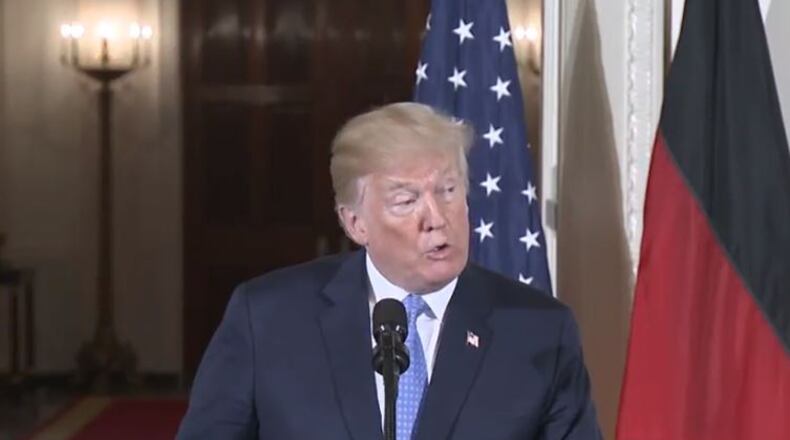With the date of a summit meeting with North Korean leader Kim Jong Un still to be determined, President Donald Trump continued this weekend to press the case that major changes are on the horizon on the Korean Peninsula, as Mr. Trump spoke with both the South Korean and Japanese leaders about progress on a deal with the Pyongyang regime to rein in its nuclear weapons program.
"Things are going very well, time and location of meeting with North Korea is being set," Mr. Trump tweeted.
On Monday morning, Mr. Trump tweeted that a meeting with Kim Jong Un could take place in the Demilitarized zone along the border between North and South Korea.
The meeting last week of the leaders of North and South Korea was evidence alone of the dramatic shift in the situation - it was not so long ago that Mr. Trump was deriding the North Korean leader on Twitter as "Rocket Man," amid threats from Kim that North Korea might attack Guam or the U.S. mainland with nuclear missiles.
In Congress, some Republicans have said that Mr. Trump's tough line on Pyongyang - "maximum pressure" as it is known - has been responsible for the change in tune by the Communist North.
"Donald Trump convinced North Korea and China he was serious about bringing about change," said Sen. Lindsey Graham (R-SC).
"We're not there yet, but if this happens, President Trump deserves the Nobel Peace Prize," Graham said.
Last week, the President did not deny that he has been in personal contact with Kim Jong Un, as Mr. Trump shrugged off a question at a news conference with the German Chancellor.
"Have you spoken with Kim Jong Un himself?" a reporter asked.
"I don't want to comment on that," the President said.
Among foreign policy experts, some fear that Mr. Trump is getting played by the Pyongyang regime, that Kim Jong Un will say the right things about ending his nuclear ambitions, but not do so.
"Upon closer examination, there is very little of substance here," said Max Boot, a fellow at the Council on Foreign Relations, who has warily watched the Korean overtures.
"Two of North Korea’s biggest asks, over the years, have been a one-on-one meeting with US President, and a peace treaty, which could set the stage for US troops withdrawal," said Asia expert Patrick Chovanec. "Now it looks like both could be happening."
Certainly, a withdrawal of American troops in Korea - there since the 1950's - would be a major change.
"I don't have a crystal ball," said Defense Secretary Jim Mattis. "I can tell you we are optimistic right now that there's opportunity here that we have never enjoyed since 1950."
"It's taken a long time, many, many decades to get here," the President said. "Let's see what happens."
About the Author
The Latest
Featured



